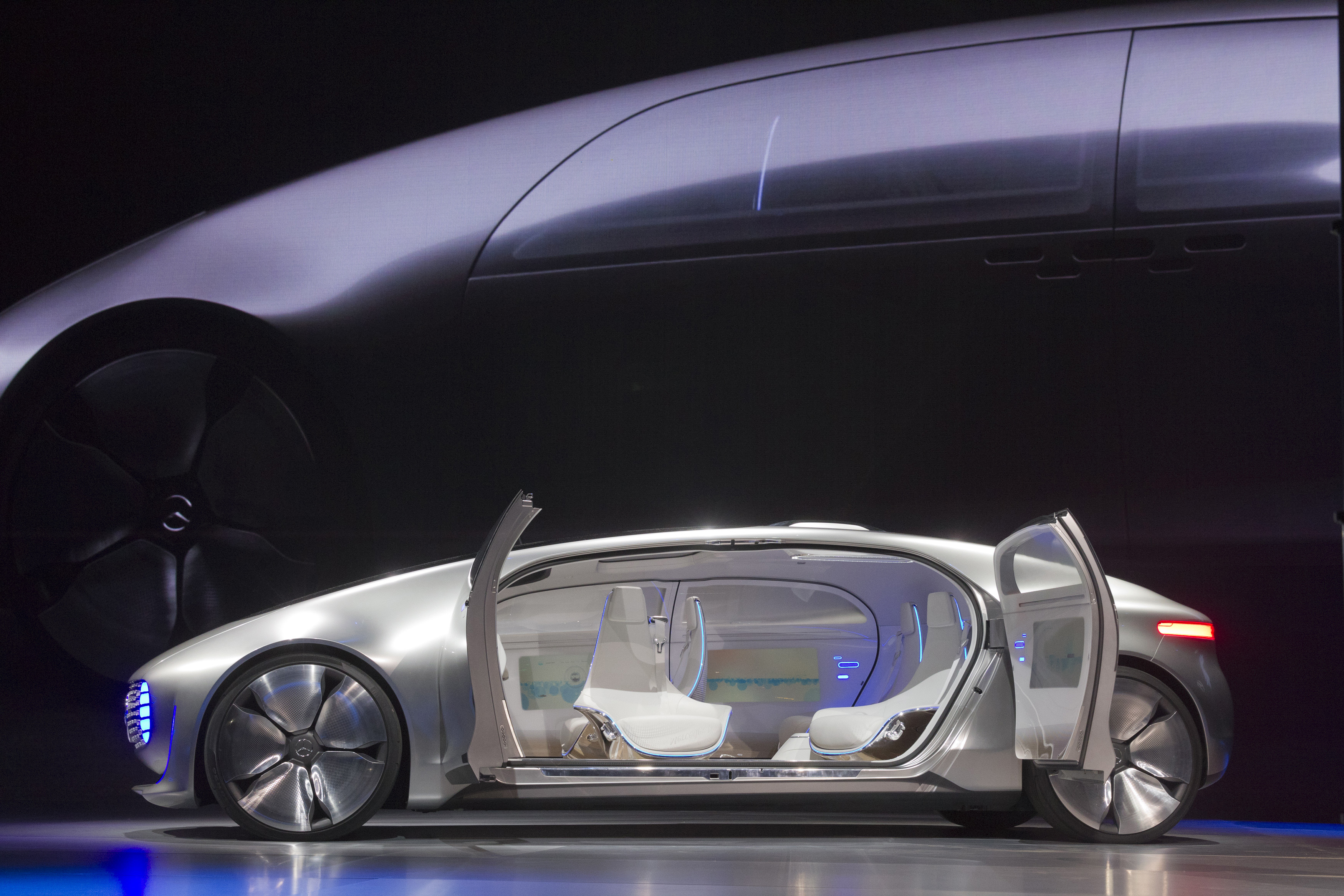Self-driving cars will change everything
Say goodbye to road rage, speeding tickets, and car insurance


A free daily email with the biggest news stories of the day – and the best features from TheWeek.com
You are now subscribed
Your newsletter sign-up was successful
Self-driving cars.
Delphi, one of the biggest auto parts suppliers in the country, will pilot a self-driving Audi from California to the New York auto show. It's part publicity stunt, part experiment: The vehicle's advanced active safety sensors will collect gigabytes of data about the experience, which Delphi will use to help build parts for autonomous cars of the future. (There will be a driver in the car, on stand-by, in case things go wrong, and to take the wheel when the car crosses into a state that regulates the robots.)
The auto industry has long considered a battery-powered autonomous driving machine to be a holy grail. The technology is all here. The sensors, the electrical lattice, the traffic grid work, the software — they're all ready to be put to use. Most states don't ban or regulate self-driving cars because they haven't given much thought to the technology. It seems too off-in-the-future-ish.
The Week
Escape your echo chamber. Get the facts behind the news, plus analysis from multiple perspectives.

Sign up for The Week's Free Newsletters
From our morning news briefing to a weekly Good News Newsletter, get the best of The Week delivered directly to your inbox.
From our morning news briefing to a weekly Good News Newsletter, get the best of The Week delivered directly to your inbox.
Indeed, the complexity of designing cars to work in all sorts of weather without human direction remains a hard problem, as SXSWers were told this week by scientist Ryan Eustice, according to The Washington Post. Delphi thinks it'll be 20 years before the technology is adopted. But Google is betting that it will be 10; some car companies are making bets that municipalities will create their own driver-free zones within the very near future. Volvo will be ready by 2017.
Straightaway, the benefits of the technology seem world-changing. People with disabilities will find their lives made much easier. Traffic accidents will probably decline significantly. Traffic efficiency will help reduce emissions (if there are emissions). I would argue that the secondary effects will be even more game-changing.
Road rage could disappear. It is much easier to take personally the driving sleights of a human being than an impersonal machine. (There might be "car-rage," in the future but its psychology will probably differ.)
DUIs will be much rarer. Self-driving cars will presumably be equipped with a mechanism that prevents operation or inhabiting by passengers who wouldn't be able to take over in an emergency; alternatively, they might well be programmed to drive extra carefully with a passenger who is inebriated.
A free daily email with the biggest news stories of the day – and the best features from TheWeek.com
Car insurance — no longer necessary. (Some insurance might be, but the liability will transfer to the machine, not on the driver.)
And human beings will learn, as Wired put it, how not to drive. Driving two hours a day takes up more brainspace than riding two hours a day. We might become more productive or perhaps we will use the time to relax before work; perhaps we will consume more media — we don't really know what our brains are going to do it with the experience, but Volvo, Google, and other companies are doing their best to figure that out.
I've thought of a few other mainstays of daily life that everything will have to rethink.
The first is that pedestrians will find the road crossings and sidewalks of the future much safer. I can imagine cities easily rewiring their traffic grids to incorporate the habits of those who walk first; during times of heavy foot traffic, the system could automatically and efficiently adjust traffic patterns to allow both those in cars and those outside of them to make their journeys more quickly.
The second is the leisurely drive to nowhere. Will drivers have to file flight plans, like pilots do, in order to make sure that the grid is able to adjust to the addition of their vehicle?
Finally, police departments and cities that finance their activities with parking tickets will have to find another source of income. Parking tickets and moving violations should be a thing of the past; the grid should be able to prevent its inhabitants from breaking the laws. And parking lots could easily self-re-arrange, too, which might make the experience of parking itself much less stressful.
The drawbacks of riderless cars will make themselves evident at some point, and there are a lot of policy questions that the public will have to decide in advance. I do not for a moment doubt that the road to driver freedom will be a bit rocky. But I'm certain its advent will be quite incredible.
Marc Ambinder is TheWeek.com's editor-at-large. He is the author, with D.B. Grady, of The Command and Deep State: Inside the Government Secrecy Industry. Marc is also a contributing editor for The Atlantic and GQ. Formerly, he served as White House correspondent for National Journal, chief political consultant for CBS News, and politics editor at The Atlantic. Marc is a 2001 graduate of Harvard. He is married to Michael Park, a corporate strategy consultant, and lives in Los Angeles.
-
 How the FCC’s ‘equal time’ rule works
How the FCC’s ‘equal time’ rule worksIn the Spotlight The law is at the heart of the Colbert-CBS conflict
-
 What is the endgame in the DHS shutdown?
What is the endgame in the DHS shutdown?Today’s Big Question Democrats want to rein in ICE’s immigration crackdown
-
 ‘Poor time management isn’t just an inconvenience’
‘Poor time management isn’t just an inconvenience’Instant Opinion Opinion, comment and editorials of the day
